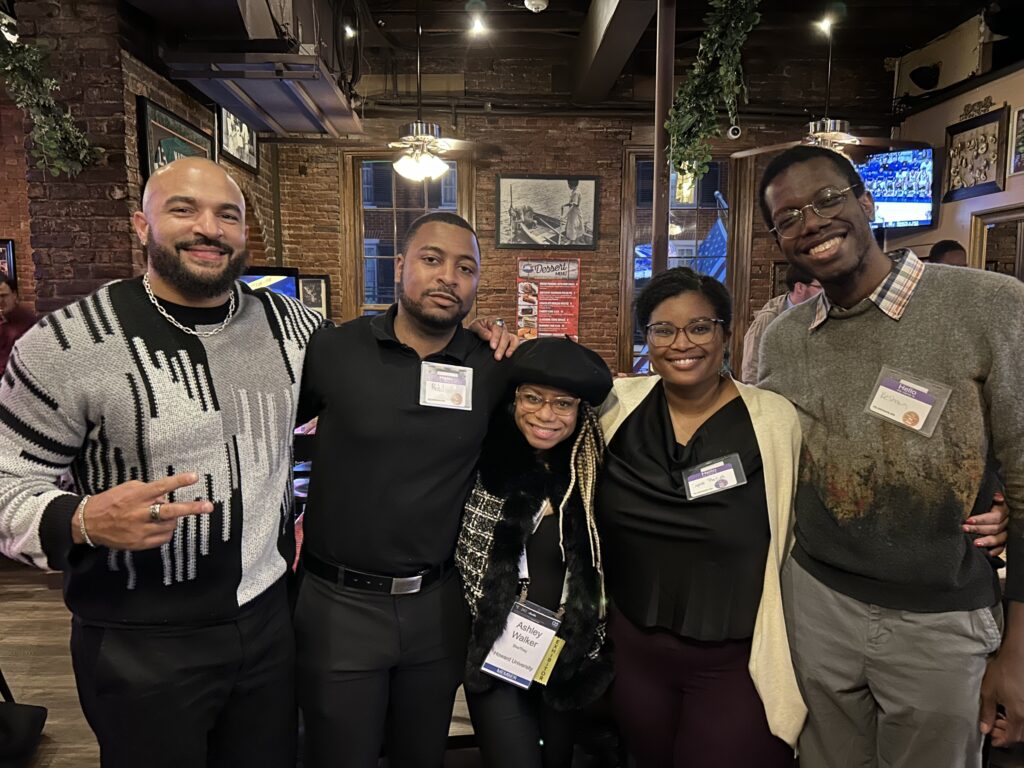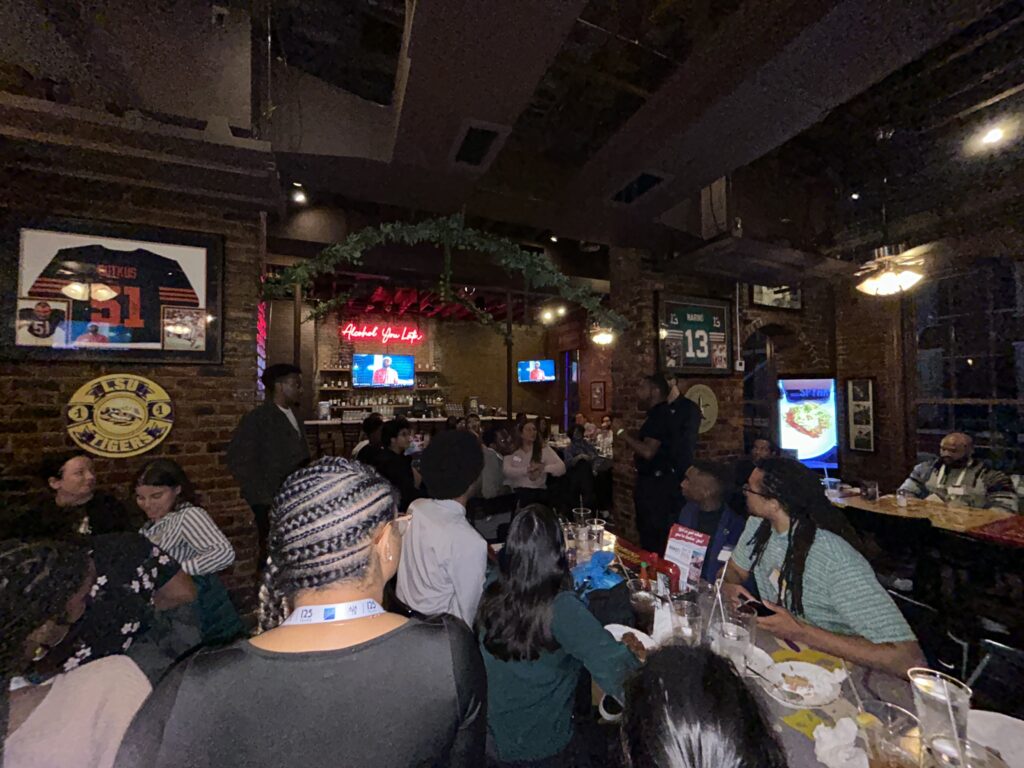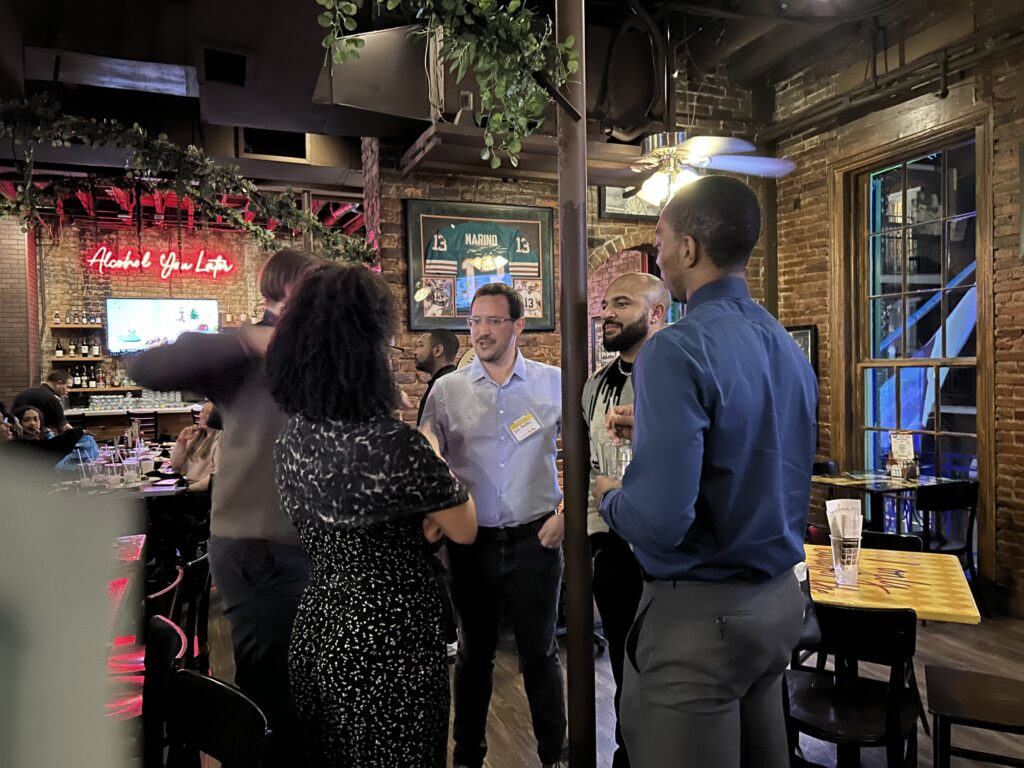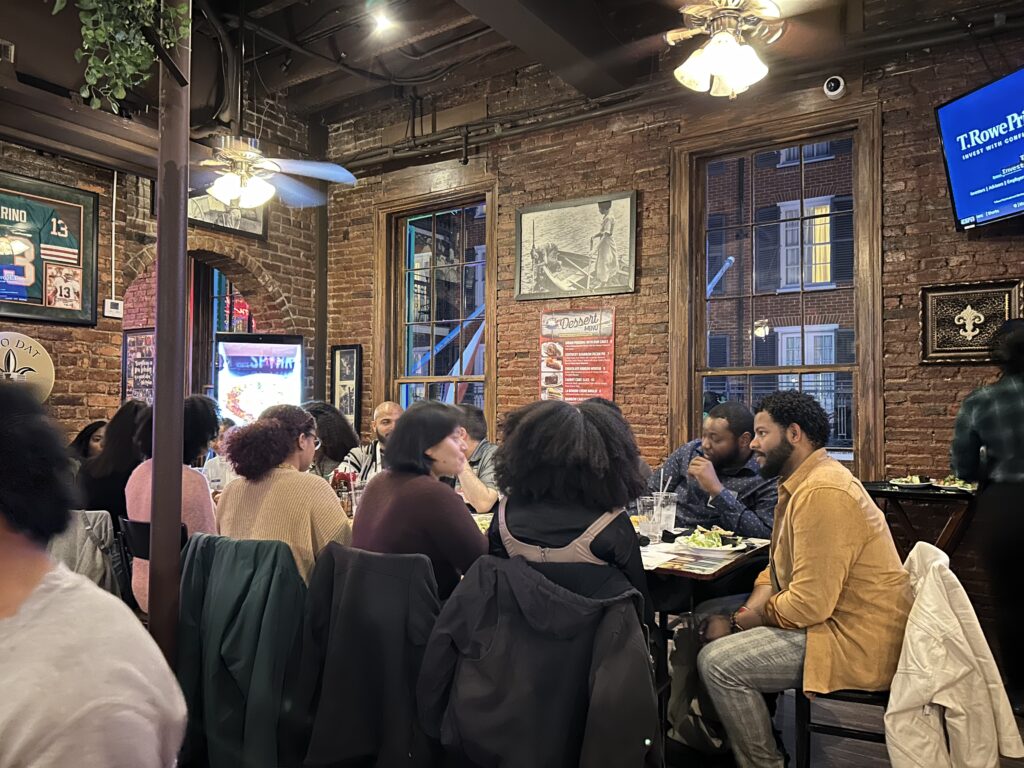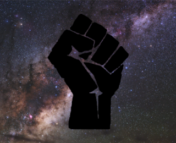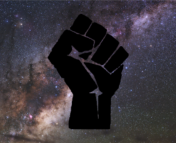The Black In Astro journey began in June 2020, in the wake of a series of violent police attacks against Black Americans. Founded by Ashley Walker, a PhD student at Howard University, Black In Astro was designed to link together a community of Black scientists and engineers across the country at all stages of their careers. In a field that has historically featured predominantly white voices, Black In Astro set out to—and has overwhelmingly succeeded in—celebrating the Black experience and providing a platform through which Black voices and scholarship can be amplified and uplifted.
A walk down memory lane
Though it has now become a nationwide movement, Black In Astro grew from relatively humble roots. Starting during a global pandemic, amidst a time of social and political unrest around the country, Black In Astro was born out of its eponymous Twitter hashtag. From its inception, Black In Astro has largely worked through its online presence and has leveraged technology to connect its previously-siloed community.
From the stories shared and connections developed out of this hashtag, it was clear that there was a vibrant community of Black scholars looking for a way to share their voices and be heard. It is from these discussions that #BlackSpaceWeek was born. #BlackSpaceWeek — an annual event series first organized by Black In Astro in 2020 — provides a space for Black folks passionate about space to come together, share their experiences, and engage in discussions about all things space. Kicked off each year with a Twitter/X roll call, the largely virtual space weeks have featured events ranging from poetry readings and movie nights to panels with successful scientists and engineers, and conversations about space law and entrepreneurship. In 2023, the Black In Astro team was able to host its first in-person event during #BlackSpaceWeek, a panel organized in collaboration with the White House National Space Council.
However, Black In Astro’s efforts have not just been limited to online community building. Recognizing the value of publicizing your work and building connections across the field, one of their biggest initiatives has involved the development of a series of travel grants to support Black students attending conferences. Some of the #BlackSpaceWeek events have been undergraduate and graduate research showcases which themselves involve monetary awards for the winning students.
Black In Astro has also leveraged collaborations with other organizations to help support their mission. During the first #BlackSpaceWeek in 2020, they partnered with Astrobites to write a series of articles showcasing the work being done by Black scholars and highlighting some of the ways that other scientists can support their Black peers. With the American Astronomical Society (AAS), for #BlackSpaceWeek 2023, they organized a video series featuring discussion of astronomical papers led by six Black scientists. Most recently, Black In Astro partnered with the AAS CSMA, LUMA, and VanguardSTEM to host the Rainbow Village at the Winter AAS meeting in 2024, a gathering space for astronomers of color to spend time and connect during the meeting.
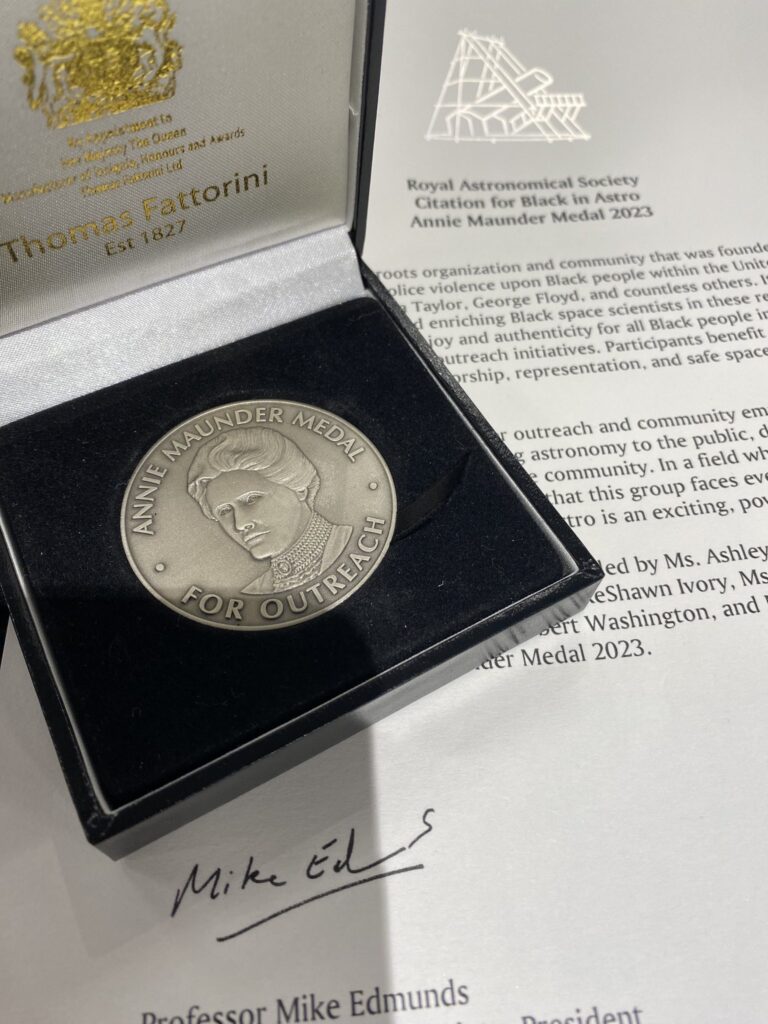
This incredible work has not gone unrecognized by the broader astronomy community. In 2023, Black In Astro’s founder and president, Ashley Walker, won the AAS Chambliss Award for her presentation describing their work. Later that year, the Black In Astro team was awarded the Royal Astronomical Society’s Maunder Medal for Outreach.
What’s going on today?
Most immediately, the Black In Astro team is busy preparing for this year’s #BlackSpaceWeek, which will run from June 16-22, 2024 and is set to feature a number of events — both in-person and virtual — centered around a theme titled multidimensional. With a ‘get ready with me’ social media challenge alongside an art competition and research showcases, #BlackSpaceWeek 2024 is sure to be one of the most vibrant weeks yet.
On top of that, the Black In Astro team has been forging collaborations and extending their efforts beyond the US as well. For example, they’ve already been able to provide travel grants to students from South Africa, the United Kingdom, and Brazil, and are building a new collaboration with the African Astronomical Society. In fact, Black In Astro will be featured at the International Astronomical Union’s General Assembly in South Africa later this year, where two of their members — Cheyenne Polius and Dr. Chris Moore — will be giving a presentation about their work, titled “Improving Diversity, Equity, and Inclusion One Hashtag at a Time.”
Peering into the future
Moving forward, Black In Astro shows no signs of slowing in their efforts. What began as a simple hashtag has quickly blossomed into a globally empowering movement and continues to grow. They plan to continue working to provide more financial support for students attending conferences and are working on hosting a number of career development events for the community. On a local level, they’ve been getting involved with museums and leading events to showcase Black role models to aspiring young scientists. In June, the team’s aerospace chair, Naia Butler-Craig, will be running a workshop introducing a small group of youth participants and their parents to the basics of CubeSAT technology, and plans to share this experience in a YouTube video. In kind, during #BlackSpaceWeek, the Black In Astro Vice President, Caprice Phillips, will be talking about the group’s work in a special Juneteenth screening of Hidden Figures!
For more details about this year’s #BlackSpaceWeek and their work moving forward, check out the Black In Astro Twitter and their website. To be notified about upcoming events, join their email list!
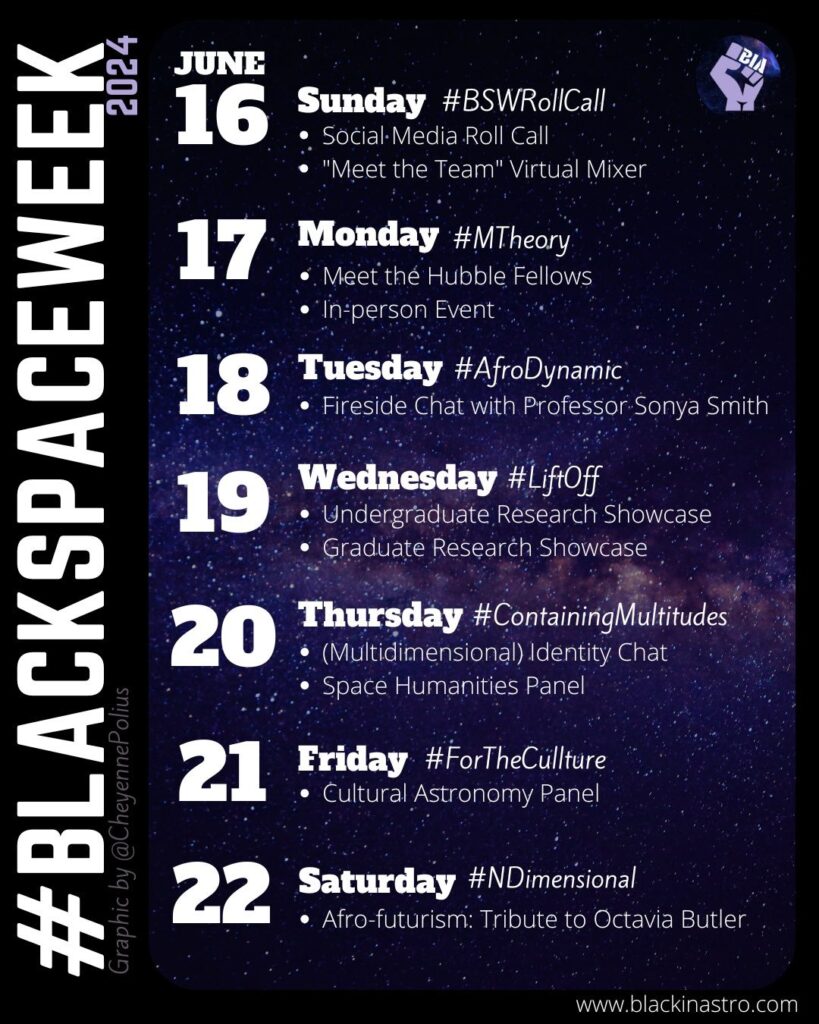
Astrobite edited by Lindsey Gordon

